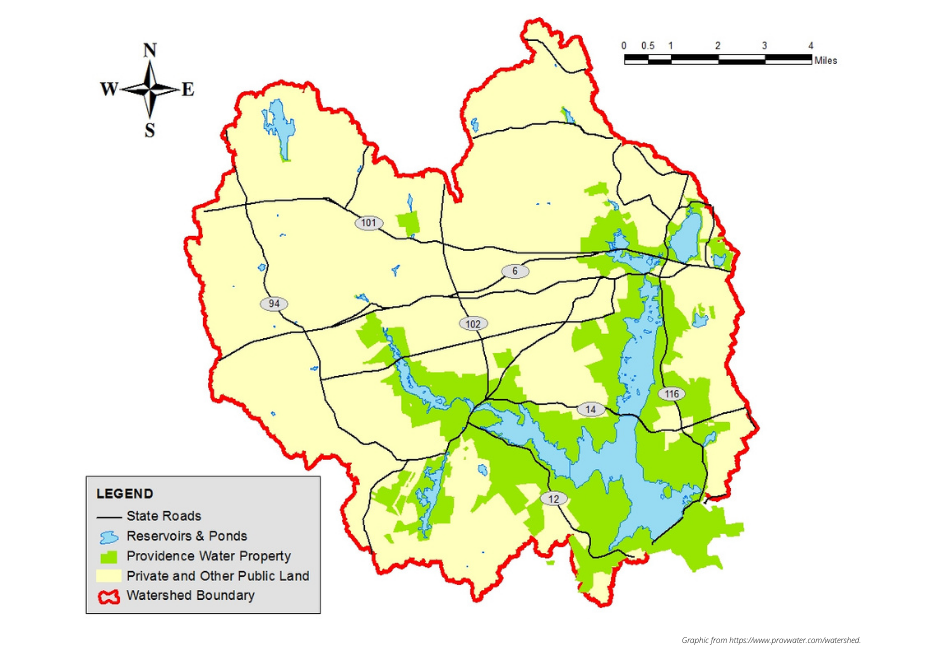
We often share legal advice on how to obtain permits and proceed with your business or construction activities properly. An oft-asked legal advice question is what happens if I don’t get the permit? This might be because someone doesn’t want to apply for the proper permit(s), or because someone is nervous about accidentally overlooking the need for one. Today, we’ll talk about the importance of working with an attorney to determine what permits are needed to avoid non-compliance problems.
TheScituate ReservoirWatershed and Development
Picture the land in the Scituate Reservoir watershed (see graphic). About 60% of Rhode Island receives its drinking water from the reservoir. It is here that the former Scituate Town Council President John Mahoney plans to construct an 18-condominium development on a former apple orchard. The project has been met with fierce opposition from the various abutters.
The Project’s Non-Compliance Issues and How Legal Advice Could Help
The Scituate Planning Board approved the project but attached a number of conditions to their approval, including monitoring tests and reports related to the wells in the area. The town issued a Final Decision on July 23, 2020, allowing Mr. Mahoney to move forward with the project despite the fact that the well testing condition was not met.
An attorney generally will give the client legal advice on these conditions, to ensure they understand them and encourage compliance to avoid litigation, violations, and fines. In this case, two of the abutters have now filed in Superior Court, appealing the decision made by the Planning Board among other claims. In addition to the court case, the Planning Board could have refused to issue a Final Decision, based on the conditions of the approval not being met. Attorneys and legal advice become almost required at this stage; at this point, a person would have spent considerable money only to now have to spend even more to litigate the issues. A proactive-minded attorney can provide legal advice earlier on, to save money and determine the needs for compliance up front to avoid litigation costs and delays.
The developer was also required to seek approval from RIDEM, which issued a RIPDES Construction General Permit (previously discussed as a priority issue for RIDEM this year). The developer allegedly failed to meet the conditions for this permit as well, and RIDEM issued an Expedited Citation Notice requiring compliance with the permit within 5 days. The citation came with a $3,000 penalty.
In addition, the permit had expired. Mr. Mahoney was given a two-week period to reactivate it, but he did not do so. He was given 30 days to pay the penalty, but was quoted as saying he would “never, ever, ever pay that.” Here, an attorney is most helpful prior to the citation notice issuing but can help with paying the fine (these citations are not appealable!) and coming back into compliance. Further non-compliance results in a Notice of Violation and Penalty: RIDEM can assess up to $25,000 per day at that point, though it is appealable. Legal advice helps prevent these fines.
The Bottom Line
It’s clear from various examples of non-compliance, including the one above, that it simply costs you more money and drastically delays your projects if you run into non-compliance issues. Desautel Browning Law’s experience with the state regulations for these kinds of projects and providing legal advice on approvals can help you or your business and identify the potential pitfalls upfront. Call us at 401.477.0023 or email help@desautelesq.com today to learn more.
